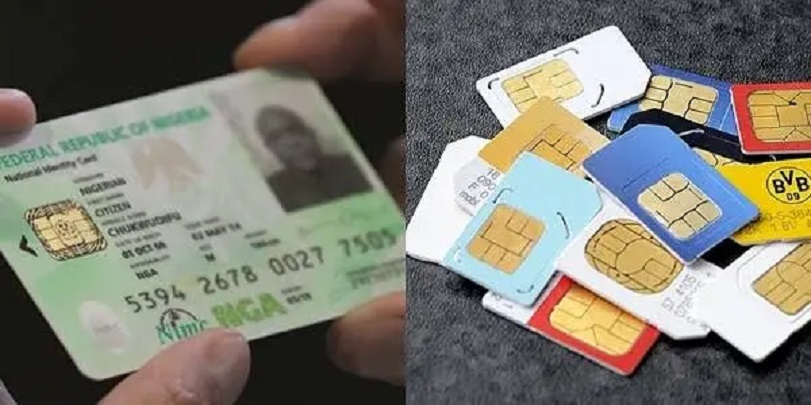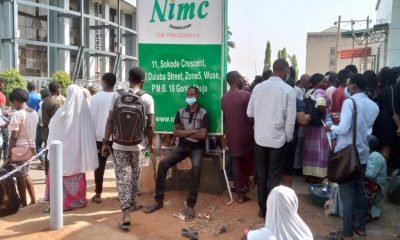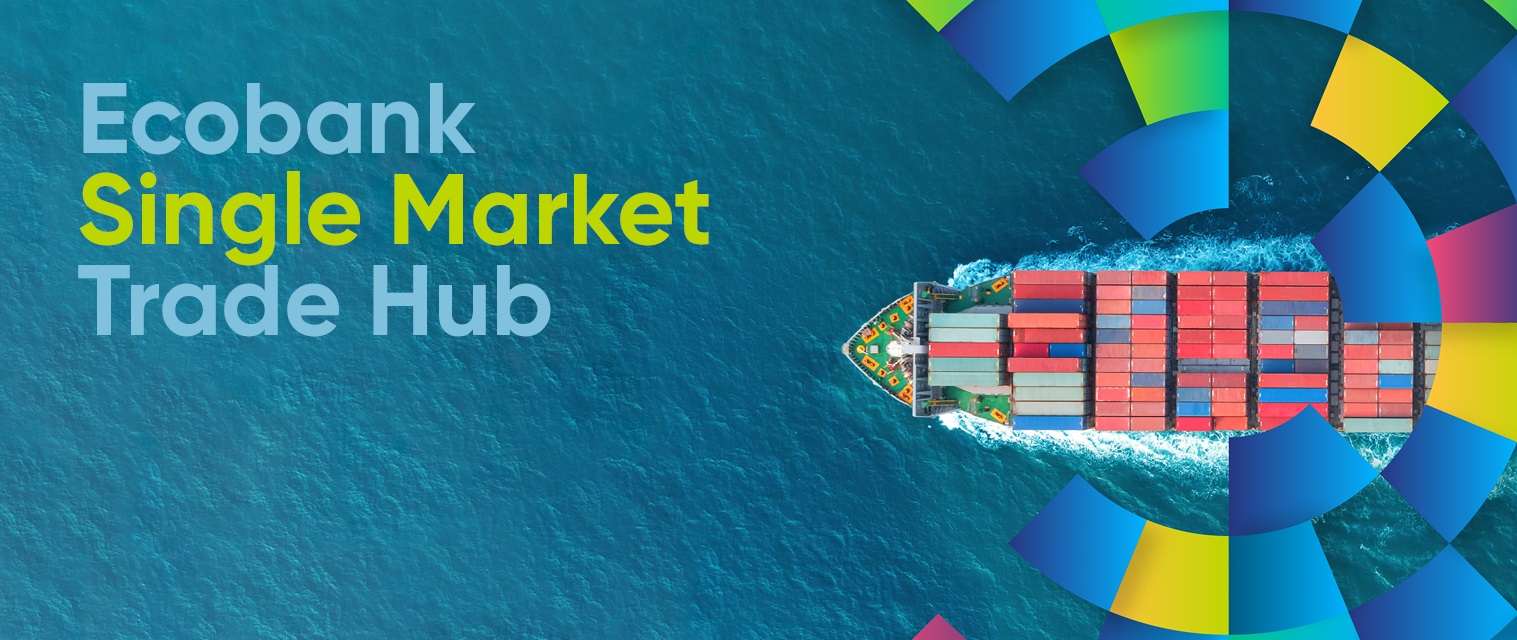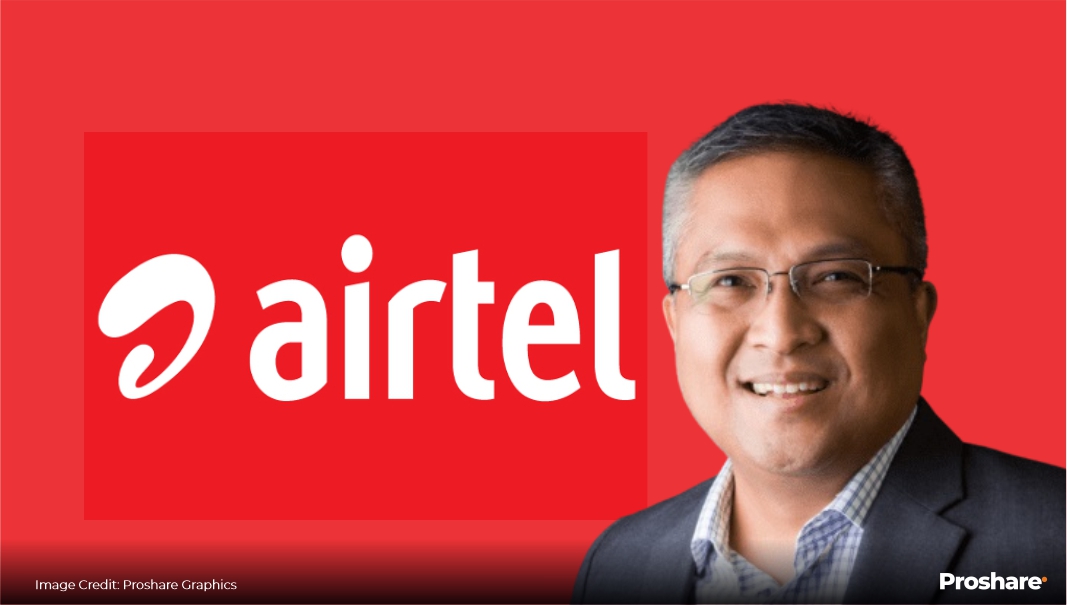Economy
NIN/BVN for Tier-1 Accounts, Imperative to Combat Fraudulent Activities
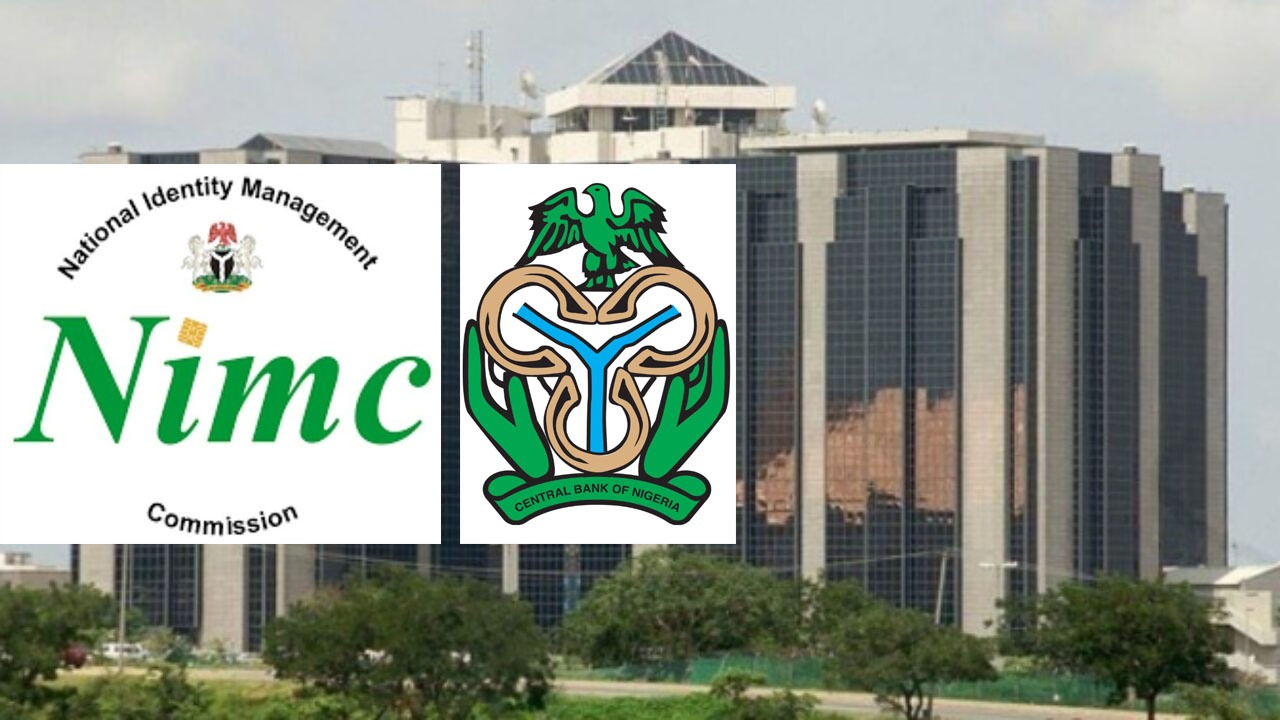
When the Central Bank of Nigeria (CBN) in December 2023, mandated the linkage of Bank Verification Numbers (BVN) and National Identification Numbers (NIN) across all tiers of accounts in Nigeria, this brought a wave of panic amongst customers who had run their accounts without BVN or NIN.
The apex bank in a circular, signed by the Director of Payment System Management Department at the CBN, Mr Chibuzo Efobi and the Director of Financial Policy and Regulations Department, Mr Haruna Mustapha, to all commercial, merchant, non-interest and payment service banks, other financial institutions and mobile money operators, stated that all individual existing and new tier 1, 2 and 3 accounts/wallets must have BVN or NIN.
Mustapha noted that the mandate was part of the apex bank’s effort in promoting financial system stability which has led to its amendment of Section 1.5.3 of the Regulatory Framework for BVN Operations and Watch-List for the Nigerian Banking Industry (Guidelines).
The CBN’s circular also specified that existing unfunded individual Tier 1 accounts without BVN or NIN would be placed on “Post No Debit or Credit” immediately.
“For all existing Tier 1 accounts/wallets without BVN or NIN: Effective immediately, any unfunded account/wallet shall be placed on ‘Post No Debit or Credit’ until the new process is satisfied.
Effective March 1, 2024, all funded accounts or wallets shall be placed on ‘Post No Debit or Credit’ and no further transactions permitted. The BVN or NIN attached to and/or associated with all accounts/wallets must be electronically revalidated by January 31, 2024”, the circular read.
It further said that to ensure uniform and full compliance, the executive compliance officers, chief compliance officers or heads of the compliance functions are advised to acquaint themselves with the attached guidance notes which become applicable to all institutions regulated by the CBN.
Sources noted that the matter was being treated as a “national security issue”, adding that banks caught operating accounts without BVN or NIN after the expiration of the deadline “shall be severely dealt with”.
Investigations further reveal that Nigerians have begun to besiege commercial banks and the National Identity Management offices as a result of the directive.
A look into the legal framework underpinning the policy indicates that the National Identity Management Commission (NIMC) Act 2007 established the NIMC and mandated the creation of a National Identity Database (NID) containing unique NINs assigned to Nigerian citizens and legal residents.
The Mandatory Use of the National Identification Number Regulation, 2017, further stipulates that NINs be used for various transactions, including employment, access to social intervention programs, and opening bank accounts whereas the CBN’s policy builds upon this existing legal framework, aiming to enhance financial security and inclusion by mandating the inclusion of identity documentation across all segments of the banking system.
However, industry records reveal that NIMC has registered just over 100 million Nigerians whilst the latest data from the Nigeria Inter-Bank Settlement System (NIBSS) as of October 9, 2023, revealed that there were 59 million (58,999,262) accounts with BVN. It is there expected that the regularisation of accounts without BVN or NIN can be achieved within the deadline given the progress that’s already been recorded on both fronts.
Looking deeper into this development, this policy provides a big boost in reducing identity theft, and fraudulent activities and prevents unauthorised access to an individual’s account.
Battle against money laundering
At the Financial Action Task Force plenary held late October in Paris, France, Nigeria failed to scale a review of Money Laundering and Terrorism Financing Risk conducted by the global financial intelligence agency.
The global agency faulted Nigeria’s anti-money laundering war, which had landed the country on the international grey list in February alongside South Africa, and 20 other countries.
Although the Nigerian Financial Intelligence Unit said it had been working to meet the FATF recommendations on money laundering and terrorism financing, it did not scale the review carried out by the FATF at its last plenary.
Countries on the FATF grey list have been identified as having strategic deficiencies in their anti-money laundering, terrorist financing, and proliferation financing regimes. According to KPMG, the implications for the greylisting of two of the biggest economies in Africa may be far-reaching.
Concerning Nigeria, KPMG said that “FATF noted that although Nigeria had made some progress since the adoption of its Mutual Evaluation Report in August 2021 it is required to implement FATF’s action plans. This FATF greylisting adds another layer of risk and complexity to businesses that already perceive Nigeria as a high-risk country for anti-corruption and other financial crime risks. This may put businesses with connections to Nigeria under more regulatory scrutiny, as regulators may expect them to implement more stringent AML/CFT compliance measures to mitigate the risks associated with greylisting.”
Also, the greylisting may result in higher compliance costs and increased due diligence requirements for businesses, making transactions with Nigerian counterparties more difficult. A key component of the anti-money laundering requirement of FATF is Know Your Customer (KYC), which helps financial institutions verify the identity of new and existing customers.
Hence, this directive by the CBN is a tool to get Nigeria off the grey list and strengthen its battle against money laundering in Nigeria.
Enhancing financial inclusion and financial security
So far, Nigeria has brought more of its citizens into the financial system but remains far from its goal of getting 95 per cent of the population fully banked this year 2024. According to EFInA, a UK government-backed firm, the percentage of adult Nigerians with formal financial services- including bank accounts, insurance and mobile money- rose to 64 per cent in 2023 from 56 per cent recorded in 2020. But just about 52 per cent have a bank account and more comprehensive adoption is hampered by widespread poverty in the country. This directive offers a much broader sense of increasing the number of financially included people especially if it is very much strictly implemented. Once this is achieved, scammers who previously relied on stolen information to conduct fraudulent transactions will face a bigger challenge.
Boost economic growth and improve revenue generation
Apart from prevention and financial inclusion, this directive is expected to unlock new markets, drive entrepreneurship, and boost the creation of jobs. Similarly, with an accurate identification technique, tax evasion by individuals and companies becomes significantly harder. This can lead to increased government revenue and improved public services, benefiting all Nigerians.
Conclusion
The truth is that very few policies go through successful implementation in Nigeria, the onus is now on the CBN to revolutionize the country’s financial sector through financial security, empowering Nigerians, and stimulating economic growth through its latest directive. Although January 31, 2024, looks like a long period, the CBN & NIMC should do everything humanly possible to adeptly navigate potential pitfalls, unlocking the brighter future promised by this ambitious initiative.
Economy
Seven Price Gainers Boost NASD OTC Bourse by 2.19%

By Adedapo Adesanya
Seven price gainers flipped recent declines at the NASD Over-the-Counter (OTC) Securities Exchange, raising the alternative stock market by 2.19 per cent on Friday.
According to data, the market capitalisation added N51.24 billion to end N2.389 trillion compared with the previous day’s N2.338 trillion, while the NASD Unlisted Security Index (NSI) climbed 85.65 points to close at 3,994.32 points, in contrast to the 3,908.67 points it ended a day earlier.
Business Post reports that the advancers were led by MRS Oil Plc, which improved its value by N13.00 to N200.00 per share from N187.00 per share, FrieslandCampina Wamco Nigeria Plc gained N7.40 to settle at N91.55 per unit versus the previous day’s N84.15 per unit, Central Securities Clearing System (CSCS) Plc appreciated by N6.08 to N71.00 per share from N64.92 per share, Afriland Properties Plc added 66 Kobo to finish at N17.17 per unit versus N16.51 per unit, IPWA Plc rose 37 Kobo to N4.15 per share from N3.78 per share, First Trust Mortgage Bank Plc grew by 11 Kobo to N1.20 per unit from N1.09 per unit, and Food Concepts Plc went up by 10obo to N3.70 per share from N3.60 per share.
On the flip side, there were two price losers led by Geo-Fluids Plc, which depreciated by 28 Kobo to N3.32 per unit from N3.60 per unit, and Industrial and General Insurance (IGI) Plc dropped 5 Kobo to sell at 45 Kobo per share from 50 Kobo per share.
Yesterday, the volume of trades went down by 92.0 per cent to 3.7 million units from 45.8 million units, the value of transactions fell by 59.4 per cent to N84.5 million from N208.2 million, while the number of deals went up by 7.7 per cent to 42 deals from 39 deals.
CSCS Plc remained the most traded stock by value (year-to-date) with 32.6 million units exchanged for N1.9 billion, trailed by Geo-Fluids Plc with 119.6 million units valued at N470.3 million, and Resourcery Plc with 1.05 billion units traded at N408.6 million.
Resourcery Plc closed the day as the most traded stock by volume (year-to-date) with 1.05 billion units sold for N408.7 million, followed by Geo-Fluids Plc with 119.6 million units worth N470.3 million, and CSCS Plc with 32.6 million units worth N1.9 billion.
Economy
FX Demand Worries Weaken Naira to N1,346/$1 at Official Market

By Adedapo Adesanya
The Naira weakened further against the United States Dollar in the Nigerian Autonomous Foreign Exchange Market (NAFEX) on Friday, February 20, by N4.97 or 0.37 per cent to N1,346.32/$1 from the N1,341.35/$1 it was transacted on Thursday.
Heightened FX demand tilted the market toward the downside yesterday, exerting upward pressure on rates despite efforts by the Central Bank of Nigeria (CBN) to stabilise the foreign exchange market.
Also in the official market, the domestic currency depreciated against the Pound Sterling during the session by N9.39 to sell for N1,815.25/£1 versus the previous day’s N1,805.86/£1, and lost N7.33 against the Euro to close at N1,584.62/€1 compared with the preceding session’s N1,577.29/€1.
The story was not different for the Nigerian Naira at the GTBank FX desk, where it depleted against the Dollar by N7 on Friday to quote at N1,356/$1 versus the N1,349/$1 it was sold a day earlier, but remained unchanged in the black market at N1,370/$1.
It was observed that risky sentiment among Foreign Portfolio Investors (FPIs) contributed to the FX market, amid fears of hot money flight due to capital gains tax and other factors.
As for the cryptocurrency market, it was mostly green yesterday in reaction to a Supreme Court verdict dismissing a fresh 10 per cent global levy by President Donald Trump.
The apex court on Friday described Mr Trump’s global tariff rollout as illegal. The decision did not clarify what should happen to tariff revenue already collected, and it doesn’t necessarily spell the end of the trade agenda, with multiple legal and executive avenues still available.
Litecoin (LTC) grew 2.7 per cent to $55.00, Cardano (ADA) appreciated 2.6 per cent to trade at $0.2815, Binance Coin (BNB) expanded by 2.6 per cent to $627.19, Dogecoin (DOGE) recouped 1.3 per cent to quote at $0.1, Ripple (XRP) jumped 0.7 per cent to $1.43, Solana (SOL) improved by 0.5 per cent to $84.15, and Ethereum (ETH) soared 0.1 per cent to $1,962.78.
However, Bitcoin (BTC) lost 0.2 per cent to sell for $67,850.49, while the US Dollar Tether (USDT) and the US Dollar Coin (USDC) traded flat at $1.00 each.
Economy
Fidson, Jaiz Bank, Others Keep NGX in Green Territory

By Dipo Olowookere
A further 0.99 per cent was gained by the Nigerian Exchange (NGX) Limited on Friday after a positive market breadth index supported by 53 price gainers, which outweighed 23 price losers, representing bullish investor sentiment.
During the trading day, the trio of Jaiz Bank, Fidson, and NPF Microfinance Bank chalked up 10.00 per cent each to sell for N11.00, N86.90, and N6.27, respectively, while Deap Capital appreciated by 9.96 per cent to N7.62, and Mutual Benefits increased by 9.94 per cent to N5.42.
Conversely, Secure Electronic Technology shed 10.00 per cent to trade at N1.62, Sovereign Trust Insurance slipped by 9.73 per cent to N2.32, Ellah Lakes declined by 7.91 per cent to N12.80, International Energy Insurance retreated by 5.56 per cent to N3.40, and ABC Transport moderated by 5.26 per cent to N9.00.
Data from Customs Street revealed that the insurance counter was up by 2.52 per cent, the industrial goods sector grew by 2.28 per cent, the banking space expanded by 1.43 per cent, the consumer goods index gained 1.23 per cent, and the energy industry rose by 0.05 per cent.
As a result, the All-Share Index (ASI) went up by 1,916.20 points to 194,989.77 points from 193,073.57 points, and the market capitalisation moved up by N1.230 trillion to N125.164 trillion from Thursday’s N123.934 trillion.
Yesterday, investors traded 820.5 million stocks valued at N28.3 billion in 63,507 deals compared with the 898.5 million stocks worth N38.5 billion executed in 61,953 deals, showing a jump in the number of deals by 2.51 per cent, and a shortfall in the trading volume and value by 8.68 per cent and 26.49 per cent apiece.
Closing the session as the most active equity was Mutual Benefits with 79.0 million units worth N427.1 million, Zenith Bank traded 44.0 million units valued at N3.8 billion, Chams exchanged 43.9 million units for N182.0 million, AIICO Insurance transacted 42.4 million units valued at N179.8 million, and Veritas Kapital sold 36.0 million units worth N90.6 million.
-

 Feature/OPED6 years ago
Feature/OPED6 years agoDavos was Different this year
-
Travel/Tourism10 years ago
Lagos Seals Western Lodge Hotel In Ikorodu
-

 Showbiz3 years ago
Showbiz3 years agoEstranged Lover Releases Videos of Empress Njamah Bathing
-

 Banking8 years ago
Banking8 years agoSort Codes of GTBank Branches in Nigeria
-

 Economy3 years ago
Economy3 years agoSubsidy Removal: CNG at N130 Per Litre Cheaper Than Petrol—IPMAN
-

 Banking3 years ago
Banking3 years agoSort Codes of UBA Branches in Nigeria
-

 Banking3 years ago
Banking3 years agoFirst Bank Announces Planned Downtime
-

 Sports3 years ago
Sports3 years agoHighest Paid Nigerian Footballer – How Much Do Nigerian Footballers Earn


